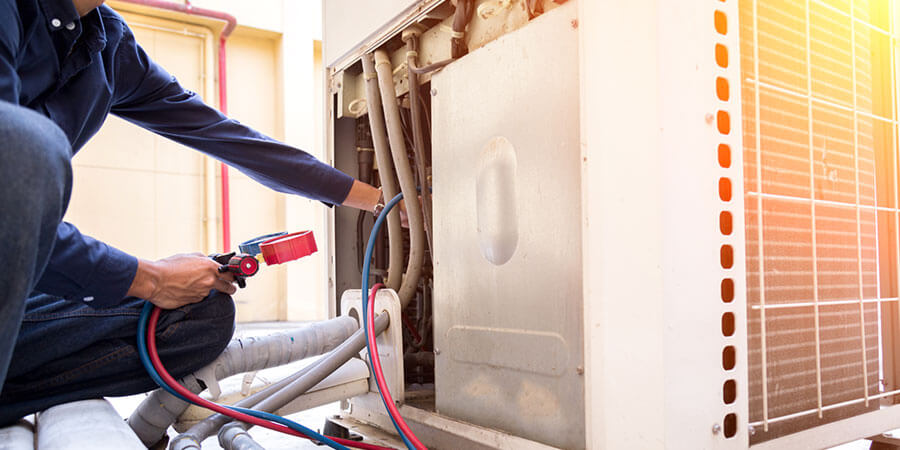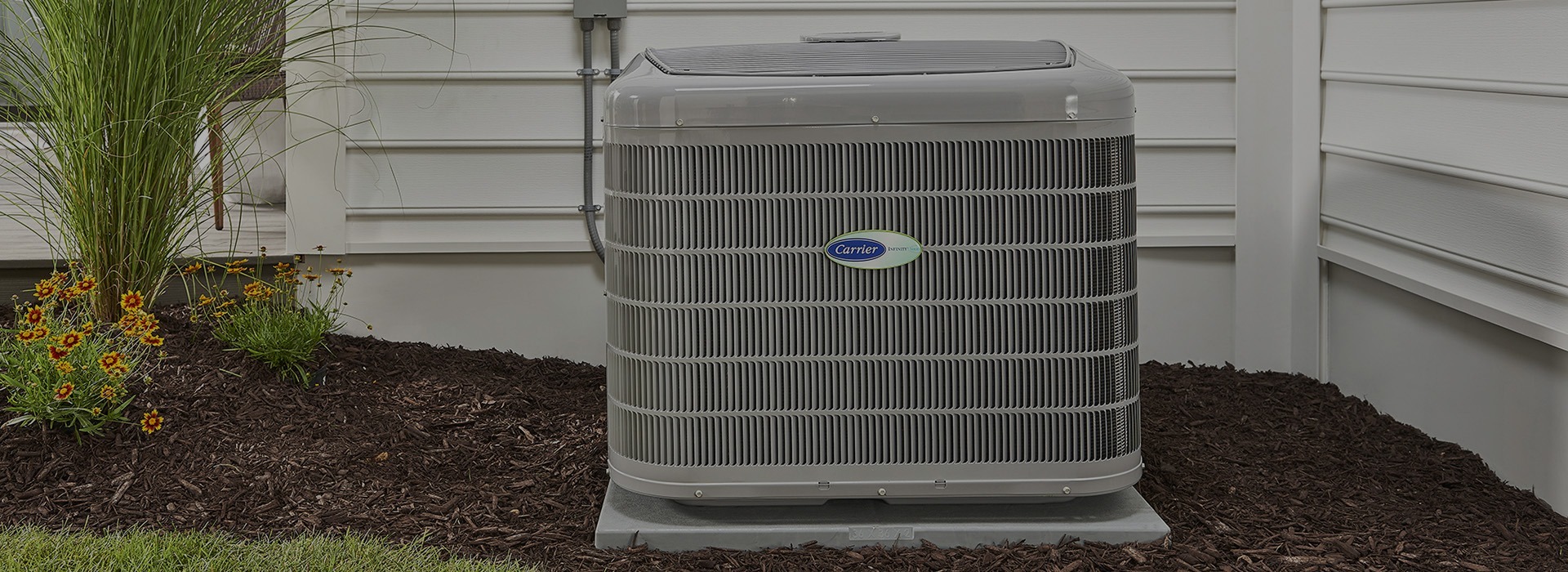High-Quality Repairs for Your Equipment Provided by DMAKS HVAC.
High-Quality Repairs for Your Equipment Provided by DMAKS HVAC.
Blog Article
Just How to Select the Right A/c System for Your Needs
Selecting the ideal cooling and heating system is an essential choice that needs careful consideration of numerous elements. Begin by assessing your home's dimension, design, and distinct requirements, as these aspects dictate the needed capacity and configuration of the system. Furthermore, establishing a budget plan that encompasses installment and lasting operational prices is essential. As you weigh your choices, recognizing energy efficiency scores and the implications of your neighborhood climate will certainly play a significant duty in your option. The myriad of system types offered can complicate this procedure, leading one to question which course eventually leads to optimum convenience and effectiveness.
Examine Your Home Dimension
Assessing your home size is a vital very first step in selecting the suitable a/c system. The dimension of your home straight affects the heating and air conditioning ability needed for effective climate control. A HVAC system that is too small will certainly struggle to maintain comfortable temperatures, leading to enhanced energy consumption and endure the system. On the other hand, a large system can lead to brief cycling, insufficient humidity control, and inefficient operation.
To properly analyze your home dimension, measure the square footage of each space, taking into consideration aspects such as ceiling elevation and the design. In addition, take into consideration the insulation quality and the variety of home windows, as these aspects impact thermal performance. Residences with open flooring plans may require various system setups compared to those with many divided rooms.
Making Use Of the Handbook J lots computation method can give a much more exact quote of your a/c needs. This technique accounts for numerous elements, consisting of regional climate, solar gain, and tenancy patterns. By very carefully evaluating these facets, you can guarantee that your picked heating and cooling system is suitably sized, leading to boosted comfort, power efficiency, and durability of the tools.
Determine Your Budget Plan
Establishing your budget is a critical step in the a/c system option process, as it establishes the criteria for your choices - DMAKS HVAC. A cooling and heating system is a substantial investment, and recognizing your financial limitations will certainly help narrow down options that fit within your ways
Begin by evaluating not just the first purchase cost however additionally installation expenses, which can differ substantially relying on the intricacy of the project. Consider ongoing costs such as upkeep, repair services, and power intake. A system may appear affordable initially but can result in higher expenses gradually if it is much less efficient.
It is advisable to assign a contingency fund for unforeseen expenses that may occur during setup or preliminary system modifications (DMAKS HVAC). Furthermore, check out financing options or rebates that may be readily available, as these can alleviate the concern of in advance costs
Inevitably, having a clear budget plan enables you to engage with heating and cooling specialists more successfully, ensuring you obtain tailored guidance that straightens with your economic goals and home demands. By being thorough about your budget plan, you can make informed decisions that improve convenience without jeopardizing economic stability.
Evaluate Power Effectiveness
Energy performance plays a vital role in the overall efficiency and cost-effectiveness of your cooling and heating system. When choosing a system, it is vital to consider its energy performance ratings, as these figures straight influence your energy bills and environmental footprint. Seek browse around this web-site systems with a high Seasonal Energy Effectiveness Proportion (SEER) for cooling down and a high Yearly Gas Application Efficiency (AFUE) score for home heating. Greater rankings indicate greater effectiveness, suggesting more comfort for less energy usage.
Additionally, consider the Energy Star accreditation, which indicates that the system fulfills rigorous performance standards established by the Epa. Buying a Power Star-rated a/c system can lead to considerable cost savings in time, especially in areas with extreme temperature level fluctuations.
Another factor to evaluate is the system's dimension and ability. A large or undersized system can cause ineffectiveness and boosted energy costs. DMAKS HVAC. Correct sizing, often established via a Hand-operated J lots computation, guarantees that the system operates at ideal effectiveness


Consider Climate and Environment
When selecting a HVAC system, it is essential to think about the regional climate and ecological conditions, as these aspects considerably influence Full Report the system's efficiency and performance. Various areas experience differing temperature level extremes, humidity degrees, and seasonal adjustments, all of which impact home heating and cooling down demands.

Moreover, regional ecological variables, such as air high quality and prospective irritants, must notify your choice. Solutions equipped with innovative filtration innovations can help reduce toxins and provide cleaner air. Furthermore, think about the energy sources readily available in your location-- some HVAC systems are much more reliable when powered by gas or renewable resource sources.
Inevitably, aligning your HVAC system option with your regional environment go to this site and ecological considerations will result in improved comfort, enhanced effectiveness, and reduced power expenses.
Explore System Kind and Features
As homeowners seek to optimize comfort and efficiency, exploring the various types of heating and cooling systems and their distinct functions ends up being necessary. The key sorts of cooling and heating systems consist of central air, heatpump, ductless mini-split systems, and heating systems. Each system uses distinct advantages tailored to different demands and choices.
Central air systems supply uniform cooling throughout a home, making them ideal for larger spaces. Warm pumps act as both heating and cooling down remedies, using electrical energy to transfer warmth, which can cause reduced power expenses. Ductless mini-split systems are becoming increasingly preferred as a result of their adaptability and convenience of setup, allowing homeowners to regulate the temperature in individual areas without comprehensive ductwork.

Final Thought
To conclude, picking the ideal HVAC system necessitates careful consideration of various elements, including home size, budget plan restrictions, energy efficiency, local climate, and available system types. A comprehensive assessment of these elements guarantees optimal comfort and cost-effectiveness. By adhering to an organized strategy, home owners can make enlightened choices that line up with their particular needs and choices, inevitably causing improved interior air top quality and power cost savings.
Report this page